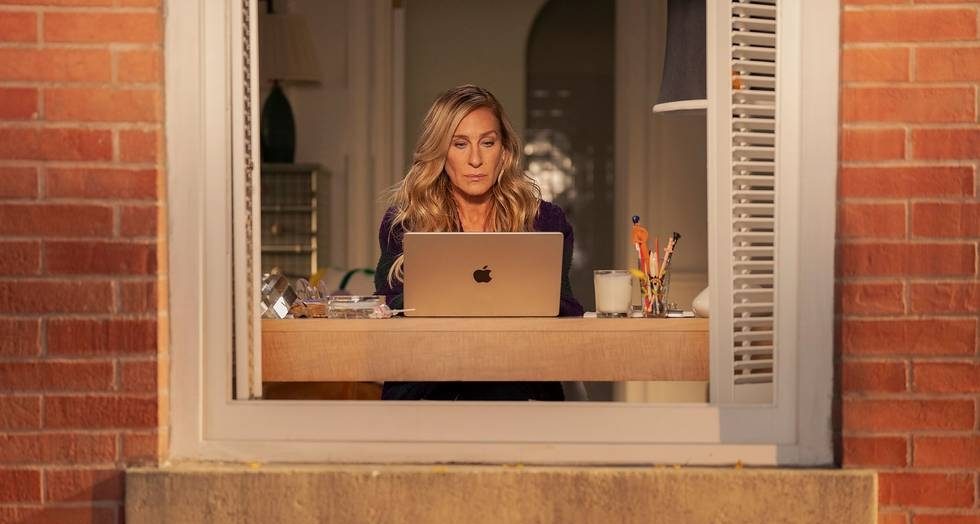The Sex and the City franchise has come to a close, at least for now, with the series finale of And Just Like That, which concluded the revival series after three seasons.
The HBO Max follow-up to the iconic original series (which picked up following the two films) began as a grief-com following the untimely death of Carrie Bradshaw’s (Sarah Jessica Parker) husband, Big (Chris Noth), and over the course of two seasons expanded its ensemble and tone before ending with a coda to the finale of the original series and leaving Carrie as fabulous — and single — in New York City.
Along the way, a vocal viewing trend emerged where viewers (and critics and writers, including one at The Hollywood Reporter) were self-identifying as “hate-watchers” of a series they collectively said was barely recognizable to the original, but one they would still never give up watching.
In her only interview since the And Just Like That finale last week, Parker (also an executive producer) was asked if she was aware of the trend.
“I don’t think I have the constitution to have spent a lot of time thinking about that,” she told the New York Times. “We always worked incredibly hard to tell stories that were interesting or real. I guess I don’t really care. And the reason I don’t care is because it has been so enormously successful, and the connections it has made with audiences have been very meaningful.”
Parker conceded that the tone has evolved over the course of the series. “We couldn’t just pretend that this catastrophic event hadn’t happened in Carrie’s life,” she said of Big’s death. “That’s why the second season was so buoyant and necessary. That was a conscious decision to have it feel much more of a soufflé.”
But she fully supported the ending co-written by AJLT showrunner and Sex and the City writer-director Michael Patrick King.
“We could have gone on doing coffee shops. There’s a million ways to do it that are easy and familiar and fun, but feel exploitative to us,” she says of why they ended the series. “We felt this was the honorable thing to do. It’s very easy to stay. It’s where we’re all happy. But you have to be principled when you make these very difficult, agonizing decisions because there’s a lot of people who are affected.”
Adding of Carrie, “I feel good about her. I think she’s set up pretty well.”
When speaking to THR about the series finale and decision to end the franchise, King said he and co-writer Susan Fales-Hill knew it was the ending when they wrote it.
“That is what I wanted to say as an echo and a callback and a response to the finale of Sex and the City, when Carrie was walking down the street and said, ‘The most significant relationship of all is the one you have with yourself. And if you find someone to love the love you love, well that’s fabulous,’” he explained of Carrie ending up single after breaking up with longtime love Aidan Shaw (John Corbett) earlier in the season. “This last episode was about creating so much chaos and so much love and so much family around her that you would feel that she was not alone. But when she walks into that beautiful house — quiet — and eats pumpkin pie with a spoon, you realize, ‘Oh, that’s pretty good life, too. That’s a pretty good life.’”

